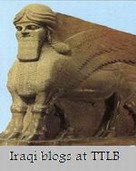Rabih on Allah vs "God": It's School, Stupid
[cannot wait to read his book. he gave us a taste of the novel at the RAWI conference (May 2007 at the Arab American National Museum in Dearborn, Michigan)
this U.S. tendency always made me insane. I taught in Dearborn and my colleagues kept talking about we should be inclusive of Muslims and their Allah versus the Christian God.
whhhhhhhat? oyyyyy This reminds me of how American idiots say "Madressa" with an ominious tone, butchering the pronunciation badly is enough, but then making is seem like Madressa means Islamic fundamentalist schools. hello, stupid. Madressa means school. neutral like house, dog, whatever. no religion. it should be considered a secular word.
more shit talk,
nayj
"Using English to separate the two has become a dangerous practice."
Los Angeles Times
English, a mongrel from the start, greedily helps itself to foreign words more than any other. The Oxford English Dictionary lists more than 500,000 of them, whereas German has about 185,000 and French fewer than 100,000, according to "The Story of English" by Robert McCrum, William Cran and Robert MacNeil. Give us your tired, your poor, your fabulous words yearning to be free. We'll take them.
English has always had a special fondness for other European languages, a neighborly soft spot -- perhaps because Britain has been invaded by speakers of those languages from the onset of its recorded history.
But not so much fondness for the languages of non-neighbors. Despite huge increases in immigration from Africa and Asia in the last 50 years, English has resisted adopting words from these continents, except for the names of certain foods. Think of Mandarin words that have come into the language. How about from Tagalog? ("Kowtow," "shanghai" and "typhoon" from Mandarin; "boondocks" and "yo-yo" from Tagalog.)
So whenever I come across an Arabic word mired in English text, I am momentarily shocked out of the narrative. Of course, English has pilfered numerous bits of Arabic -- "artichoke," "zero," "genie," "henna," "saffron," "harem," "tariff" -- but the appropriation was so long ago that few English speakers know the words' origin. These dictionary entries were probably introduced by the Moors into Spanish first, and then by the Spaniards into English.
What has Arabic done for us lately?
If we take away the familiar food pilferages ("hummus," "falafel"), words recently adopted from Arabic are all troublesome: "hijab," "intifada," "fatwa" and "jihad." For an English speaker, the first suggest humiliation, the last three violence.
In Arabic, the word "hijab" means any type of veil or cover. The American Heritage Dictionary defines it as "the head scarf worn by Muslim women, sometimes including a veil that covers the face except for the eyes." In Arabic, "intifada" denotes rebellion, a throwing off of shackles. Merriam-Webster's definition is an armed uprising of Palestinians against Israeli occupation of the West Bank and Gaza Strip. "Fatwa" isn't simply a religious decree; it's an Islamic religious decree. Even though a fatwa could be an exhortation by, say, a Moroccan cleric to raise literacy for women, in English, it is used almost exclusively in reference to the ignominious Salman Rushdie affair, in which former Iranian leader Ayatollah Ruhollah Khomeini ordered the death of the novelist because of Rushdie's alleged blasphemy in his novel, "The Satanic Verses."
And "jihad" comes from the word "excel," juhd or ijtihad in Arabic. It means a holy war or righteous struggle. Some schools in the Middle East, religious and secular, will hold jihads -- or special intense programs to get students to accomplish something -- to improve math scores and raise reading levels. Although most English usage I've come across refers only to an Islamic holy war, I have begun to see "jihad" as a synonym for crusade (originally a Christian holy war, broadened now) and a vigorous fight against something. In other words, jihad, this English word, might one day encompass its full Arabic meaning.
English has yet to incorporate these words fully, and history suggests it might never do so. The language is filled with words that are culture specific: "sahib," "coolie," "effendi," "bey." The word "emir" simply means prince in Arabic, but in English it is a prince or ruler of an Islamic state. When my sister in Beirut tells her daughter a bedtime story, the emir kisses the sleeping princess awake. No mother in the U.S. or Britain would let an emir anywhere near a princess' lips. No princess will ever sing "Someday My Emir Will Come."
That in some ways is how it should be. Language, after all, is organic. You can't force words into existence. You can't force new meanings into words. And some words can't or won't or shouldn't be laundered or neutered. Language develops naturally.
I bring all this up, however, to get to the word whose connotation I would love to see changed -- "Allah."
Allah means God.
In Arabic, Muslims, Jews, Christians and Zoroastrians all pray to Allah. In English, however, Christians and Jews pray to God, and Allah is the Muslim deity. No one would think of using the word "Allah" to talk about any other religion. The two words, "God" and "Allah," do not mean the same thing in English. They should.
This isn't about political correctness; it isn't about language distortion. Altered or incomplete usage of words is natural, even amusing. "Confetti" in its original language means little bonbons or small sweets. And incomplete usage is at times explainable and logical. The words "beef," "pork" and "mutton" arrived with the Norman invasion. They refer solely to the meat, never to the animal, whereas in the original French they refer to both (mouton is both sheep and mutton). That is primarily because French was integrated into the language of the upper classes, which ate the meat, and less so that of the farmers, who raised the animals.
God, however, is a big deal. The word for God matters quite a bit more than what lands on one's table for dinner at night. We never say the French pray to Dieu, or Mexicans pray to Dios. Having Allah be different from God implies that Muslims pray to a special deity. It classifies Muslims as the Other. Separating Allah from God, we only see a vengeful, alarming deity, one responsible for those frightful fatwas and ghastly jihads -- rarely the compassionate God. The opening line of every chapter in the Koran is "Bi Ism Allah, Al Rahman, Al Rahim": In the name of God, the Gracious, the Merciful. In the name of Allah. One and the same.
The separation is happening on all sides. This year, the Malaysian government issued an edict warning the Herald, a weekly English newspaper, that no religion except Islam can use the word Allah to denote God. No such edict, or fatwa for that matter, is needed for the New York Times: a quick search through the archives shows that Allah is used only as the Muslim God.
In these troubled times, creating more differences, further parsing so to speak, is troubling, even dangerous. I suggest we either not use the word Allah or, better yet, use it in a non-Muslim context.
Otherwise, the terrorists win.
One nation under Allah?
Rabih Alameddine is the author of the novel "The Hakawati," due out this month.









.jpg)








 -->
-->